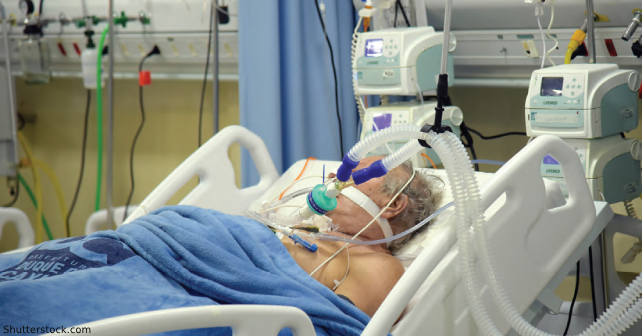
You see, this is the United States, where patients have rights and physicians are obligated to follow the goals of care outlined by the family of their patient who is unable to make decisions on their own. Mrs. Rosenberg is in a coma, unable to speak for herself, and her family members at the bedside all unanimously agree that she should undergo any procedure available to prolong her life.
Explore This Issue
ACEP Now: Vol 42 – No 03 – March 2023Mrs. Jones
Continuing our rounds, we move down the hallway and enter the room of Mrs. Jones. Mrs. Jones is only 29 years old, mother of two little children and wife to a dedicated husband. She is here in the ICU for internal bleeding. We finally stopped the bleeding this morning, but Mrs. Jones lost a lot of blood. Her blood levels remain critically low, and we are unable to replace it with a blood transfusion. Mrs. Jones is a Jehovah’s Witness, and her religion teaches that blood is a gift of life from God that cannot be accepted from another human being. Mrs. Jones will not sacrifice her religious beliefs, and her blood levels have dropped too low for any treatments other than a transfusion to be effective.
You see, this is the United States, where patients have rights and physicians are obligated to follow the goals of care outlined by their patients. Mrs. Jones has good insight into her condition and understands her poor prognosis. She has the capacity to make medical decisions, and she is requesting to exercise her right to religious freedom. Friends and family are at the bedside holding her hand while Mrs. Jones takes her last breath before we put her on a breathing machine. Later that afternoon, we watch as her young children become orphans because there is no longer anything else we can do to save her life without giving her blood.
Mr. Scott
Finally, we enter the room of Mr. Scott. Mr. Scott is a 53-year-old who is here in the ICU after shooting himself in the face. Mr. Scott has been struggling with depression exacerbated by other mental illnesses. He spent many of his teenage years in juvenile detention and most of his adult life going in and out of prison for a variety of petty crimes. He has no family to support him. He spends most of his time alone in an abandoned apartment. After two unsuccessful attempts at suicide by overdosing on his medications, he shot himself instead. The bullet took a wrong turn and destroyed his face, while his brain remained intact. A neighbor called the police after hearing the gunshot, and Mr. Scott now is kept alive on a breathing machine through a tube in his neck. He still has some remnants of what used to be a nose and cheeks, and the surgeon expects six to eight surgeries over the next few months to restore what will again resemble a face.
Pages: 1 2 3 4 | Single Page





One Response to “Difficult Decisions in the Intensive Care Unit”
March 22, 2023
Matt ManerThank you. These are all excellent ethical cases and your write up of each was great.